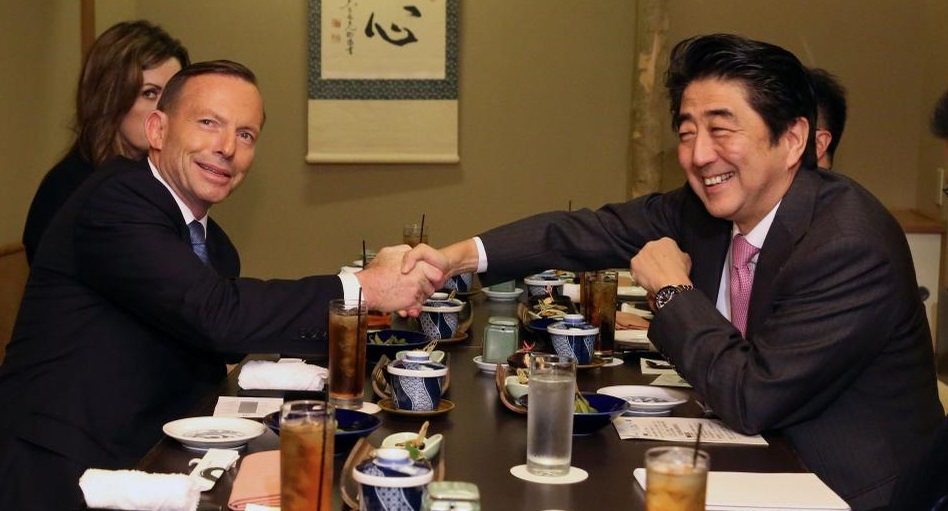Strengthening rules-based order in the Asia–Pacific
Posted By David Lang on December 19, 2014 @ 06:00
 [1]The Permanent Court of Arbitration (PCA) in The Hague is currently examining China’s South China Sea claims in a case brought by the Philippines. While China isn’t expected to take part in the case—indeed, it missed the deadline to lodge a defence this week—the Ministry of Foreign Affairs has nonetheless released a position paper [2] outlining their legal objections, one of which is that the PCA lacks jurisdiction [3]. A recent US State Department report into [4] the legality of Beijing’s South China Sea claims refuted the validity of the nine-dash line as a maritime boundary. China rejected [5]the US analysis claiming that it ‘ignores the basic facts and international legal principles’.
[1]The Permanent Court of Arbitration (PCA) in The Hague is currently examining China’s South China Sea claims in a case brought by the Philippines. While China isn’t expected to take part in the case—indeed, it missed the deadline to lodge a defence this week—the Ministry of Foreign Affairs has nonetheless released a position paper [2] outlining their legal objections, one of which is that the PCA lacks jurisdiction [3]. A recent US State Department report into [4] the legality of Beijing’s South China Sea claims refuted the validity of the nine-dash line as a maritime boundary. China rejected [5]the US analysis claiming that it ‘ignores the basic facts and international legal principles’.
Human societies can only enjoy peaceful progress under the rule of law; the same is true of international society. If cooperation and orderly behaviour are to be advanced in the Asia–Pacific, we need strong global norms and legal rules to guide and govern relations among states.
The Asian strategic environment is witness to one of the most important power shifts in history—one that might produce a more cooperative Asia or a more competitive one. The biggest strategic question we face is not simply whether the future of our region will be one of war or peace, it’s also about the nature of that peace. Will it be a peace governed by rules and norms or a peace governed by power and coercion?
Australia and Japan share an interest in minimising the role that coercion plays in the Asia–Pacific and maximising cooperation across the region. We’re both liberal democracies with a strong bilateral security relationship, an alliance with the United States and a genuine commitment to the rule of law.
ASPI has this year worked on a project to explore opportunities for both Australia and Japan jointly to promote our shared interest in strengthening the rule of law in the Asia–Pacific. Today we release a Special Report—available here [6]—that draws together the findings of that project.
We examined several broad areas where Canberra and Tokyo should lead to promote the rule of law in the Asia–Pacific including on trade and economic issues, through initiatives in the sea, air, cyber and space commons, with conflict-affected states, on humanitarian assistance and disaster relief, and in the East Asia Summit (EAS).
The aim wasn’t to replicate the policy proposals emerging from bodies like ASEAN and the EAS, but rather to suggest potential initiatives where Japan and Australia might successfully promote regional cooperation to deal with a range of economic and security problems through the positive effects of agreed rules and norms. The region’s security architecture should be leveraged for the implementation of the policy recommendations set out in the report.
If legal rules and norms are truly to be found for regional problems, all governments will have to conform to certain agreed standards and accept that it’s in their national interest to make international law work.
Still, we need a large dose of realism: agreements will only be obeyed because the outcomes are perceived as beneficial to the interests of the government at hand. That should be kept firmly in mind as Australia, Japan and our key ally, the United States, seek to underwrite a lasting and peaceful Asian order.
Leadership is critical for the future of the regional rules-based order; both Australia and Japan have considerable responsibility here. Few states measure up so well as Australia and Japan in abiding by and contributing to the rule of international law.
On the same day as the US State Department report was released, Vietnam filed a statement of interest [7] with the PCA pertaining to the Philippines’ case and specifically in regard to China’s claims over the Paracel and Spratly Islands in the South China Sea. In it, Vietnam rejected China’s nine-dash line as being ‘without legal basis’, requested that ‘due regard’ be paid to Vietnam’s legal rights and interests, and recognised the jurisdiction of the Court in adjudicating the case brought by the Philippines. China dismissed [8] the statement as ‘illegal and invalid.’ As territorial disputes simmer both in international arbitration and in the Asia–Pacific, the importance of a strong rules-based regional order is plain to see. Australia and Japan should endeavour to deepen cooperation and provide a model of behaviour for other governments in our region, small and large powers alike.
David Lang is an analyst at ASPI and an editor of The Strategist. With Anthony Bergin, he directed ASPI’s project on strengthening rules-based order in the Asia–Pacific. The full report is available here [6]. ASPI acknowledges the generous support of the Ministry of Foreign Affairs of Japan and the Japanese Embassy in Canberra for this project. Photo courtesy of Twitter user TonyAbbottMHR [9].
Article printed from The Strategist: https://www.aspistrategist.org.au
URL to article: https://www.aspistrategist.org.au/strengthening-rules-based-order-in-the-asia-pacific/
URLs in this post:
[1] Image: http://www.aspistrategist.org.au/wp-content/uploads/2014/12/ByVv95_CEAED4Ky1.jpg
[2] position paper: http://www.fmprc.gov.cn/mfa_eng/zxxx_662805/t1217147.shtml
[3] lacks jurisdiction: http://cogitasia.com/beijings-and-washingtons-dueling-south-china-sea-papers/
[4] report into: http://www.state.gov/documents/organization/234936.pdf
[5] rejected : http://www.reuters.com/article/2014/12/09/us-china-usa-seas-idUSKBN0JN0OG20141209
[6] here: https://www.aspi.org.au/publications/strengthening-rules-based-order-in-the-asia-pacific
[7] statement of interest: http://cogitasia.com/vietnam-files-statement-of-interest-with-the-permanent-court-of-arbitration/
[8] dismissed: http://thediplomat.com/2014/12/vietnam-launches-legal-challenge-against-chinas-south-china-sea-claims/
[9] TonyAbbottMHR: https://twitter.com/TonyAbbottMHR
Click here to print.